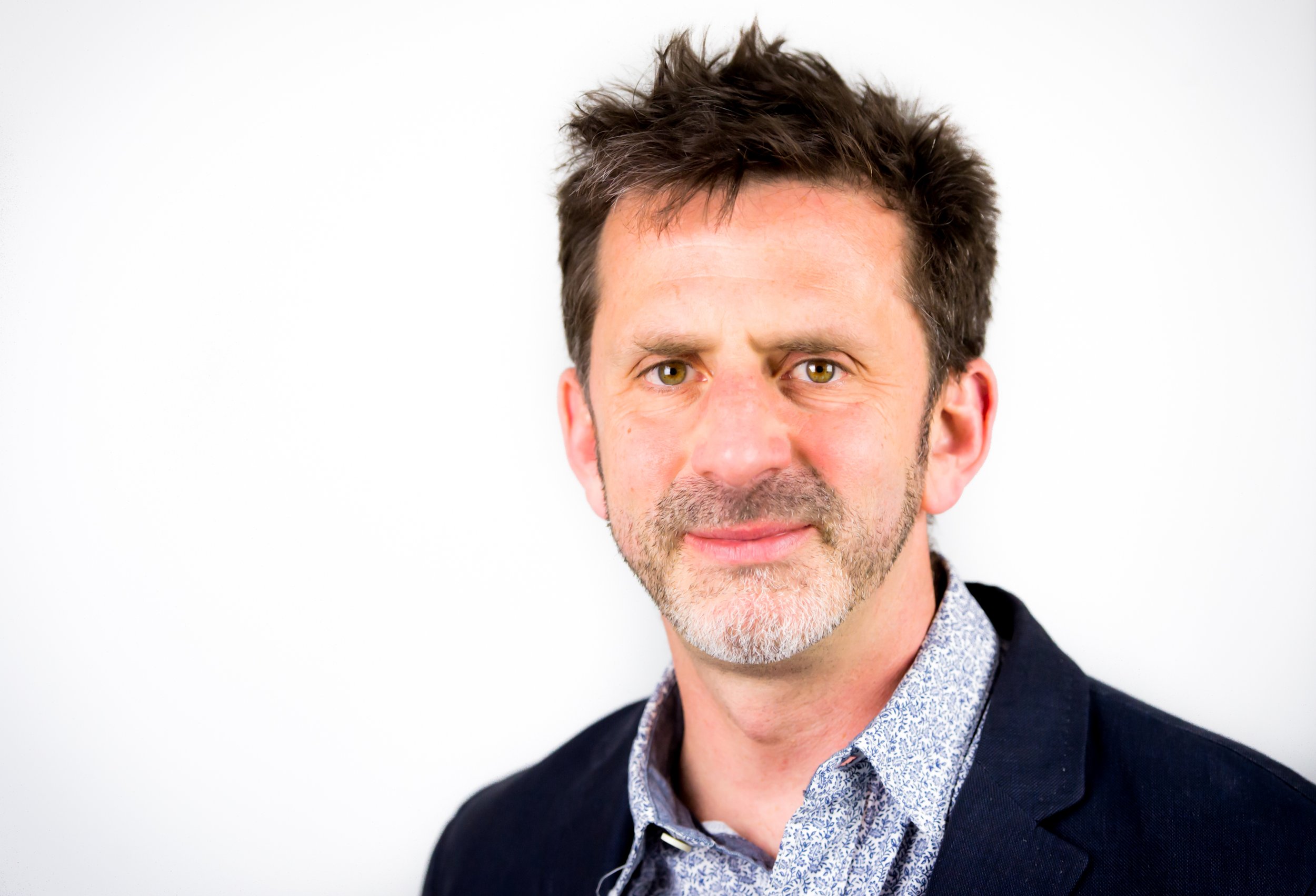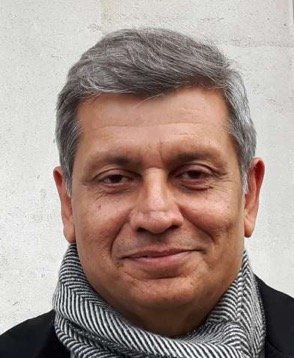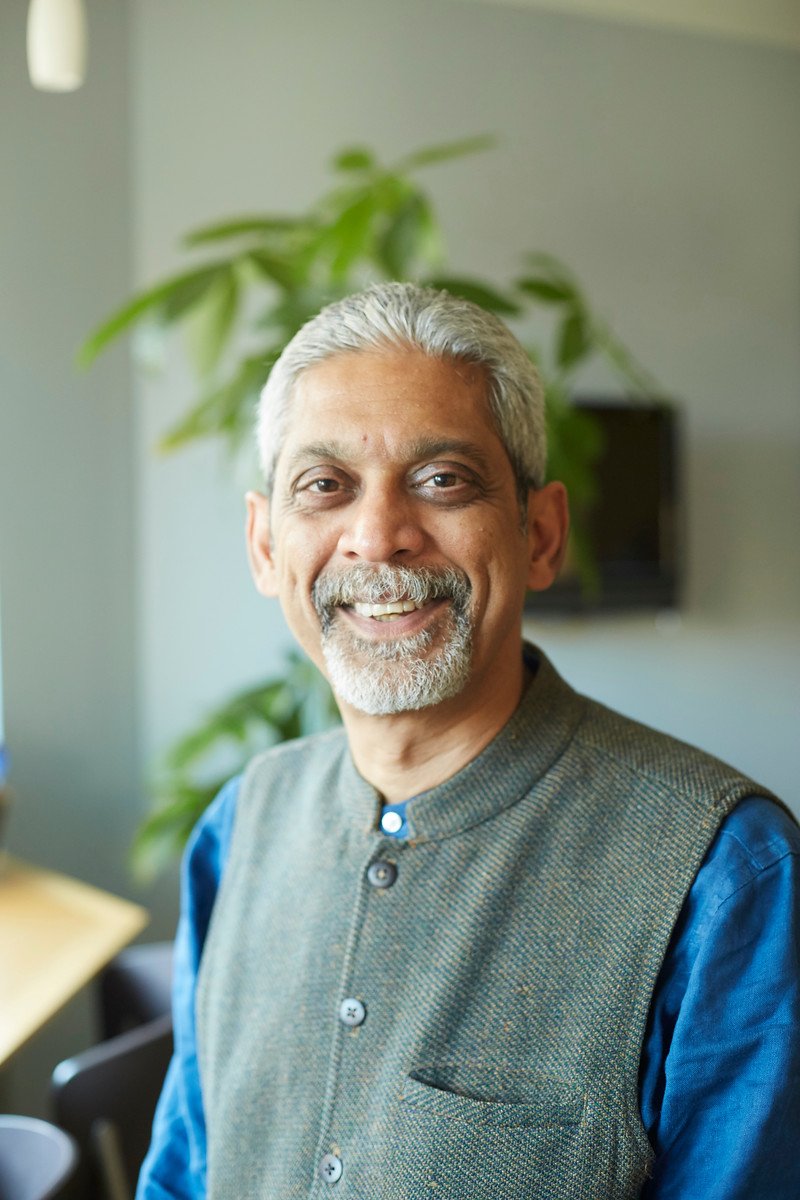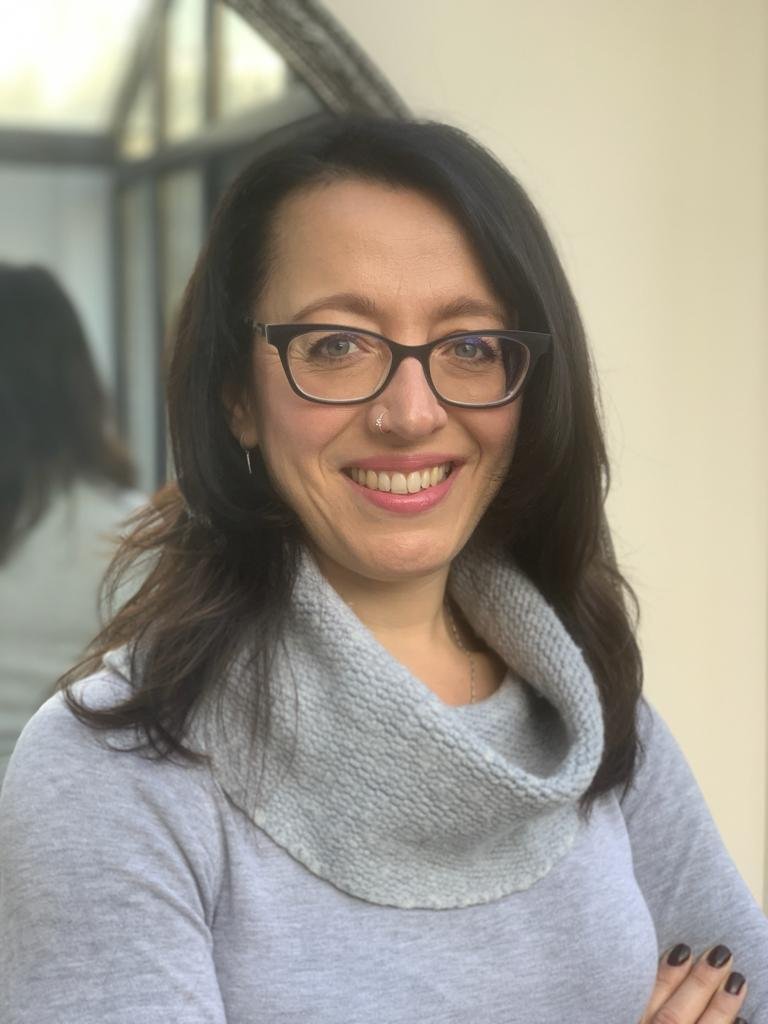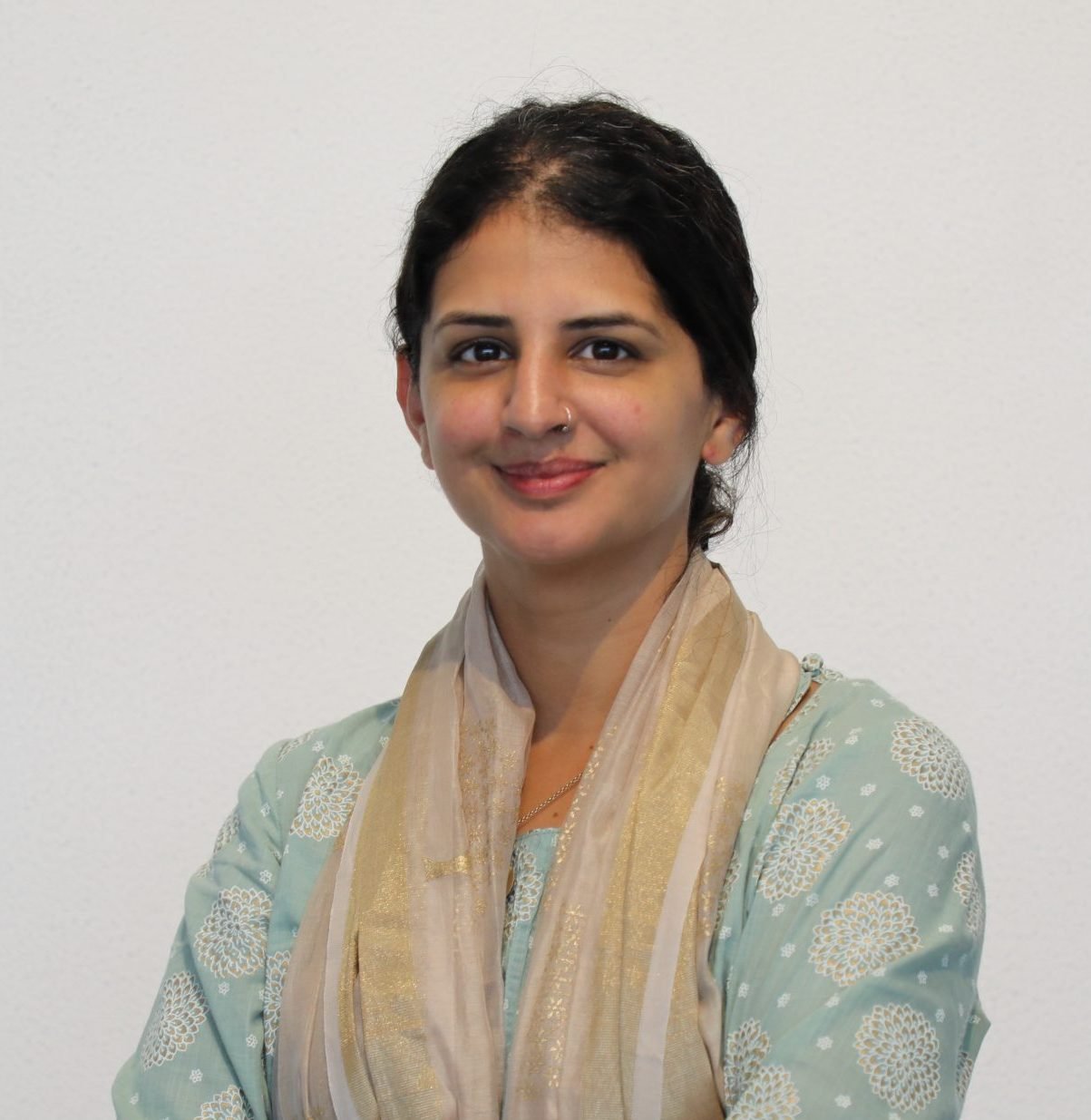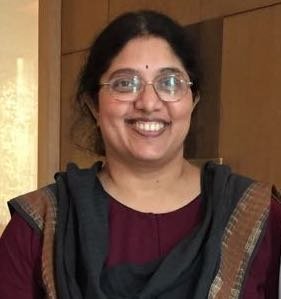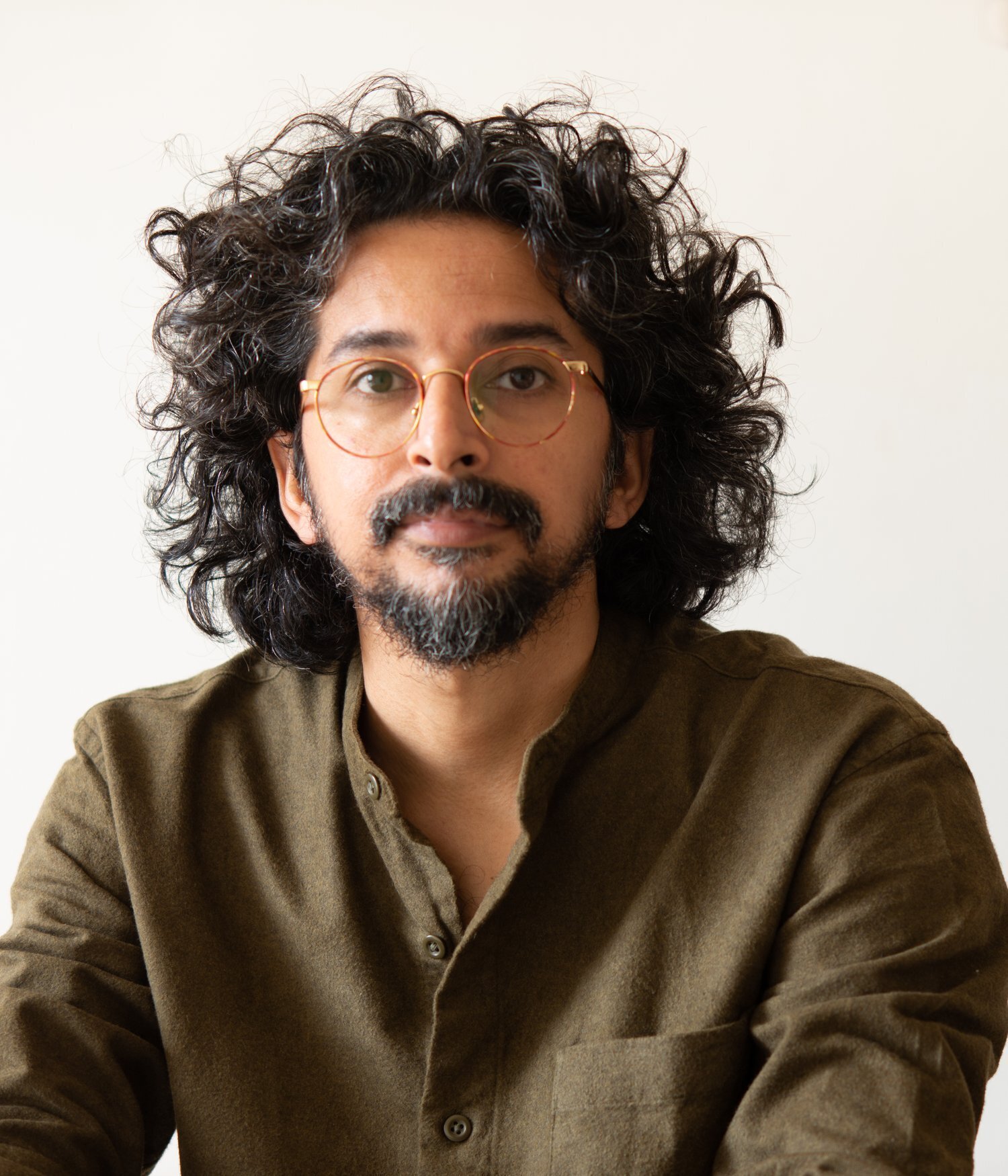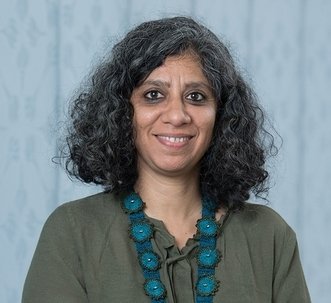ACADEMIC ADVISORS
RICHARD WINGATE
Neuroscientist and Educator
Richard Wingate is Director of the Centre for Education in the Faculty of Life Sciences and Medicine at King’s College London, having previously served as Head of Anatomy. He is also a Principal Investigator at the MRC Centre for Neurodevelopmental Disorders where his research addresses how the identity of neurons and their ultimate location in the brain are genetically specified in development and evolution.
Wingate has a long-term involvement in the public communication of science through outreach, public speaking, writing, broadcast and curating exhibitions. He is Editor-in-Chief of https://www.brainfacts.org.
SANJEEV JAIN
Psychiatrist
Sanjeev Jain teaches at the Department of Psychiatry at National Institute of Mental Health And Neurological Sciences (NIMHANS). There, in addition to being a clinician, he researches the genetic and genomic correlates of psychiatric and neurological diseases using both genetic analyses and model systems. He has an abiding interest in studying the symptoms and outcomes of psychoses as well as their social and biological correlates. He has also studied historical and social responses to mental health issues, including the development of psychiatric care, medical sciences, and health policy in South Asia, during the colonial and post-colonial periods.
ULRIKE KLUGE
Psychologist and Group Analyst
Ulrike Kluge is Professor for psychological and medical integration and migration research at the Charité, University Medicine Berlin. There, she is in charge of the Center of Cross-Cultural Psychiatry and Psychotherapy (ZIPP). She is head of the Department of Health at the Berlin Institute for Integration and Migration Research (BIM) at Humboldt University Berlin, and part of the Berlin University Alliance Consortium "Transforming Solidarities".
She studied psychology and ethnology in Marburg, Berlin and Coimbra and did her psychoanalytical and group analytical training in Berlin and Zurich. Her main research areas are migration and mental health, psyche and society, and psychotherapy with interpreters.
VIKRAM PATEL
Psychiatrist
Vikram Patel is the Pershing Square Professor of Global Health in the Blavatnik Institute's Department of Global Health and Social Medicine at Harvard Medical School. He is an Adjunct Professor at the Public Health Foundation of India, honorary professor at the London School of Hygiene and Tropical Medicine, and is a co-founder of Sangath, an Indian NGO which won the MacArthur Foundation’s International Prize for Creative and Effective Institutions in 2008 and the WHO Public Health Champion of India award in 2016. He is also co-chair of the Lancet Commission on Reimagining India’s Health System.
CURATORIAL ADVISORS
JILL BENNET
Cultural Theorist
Scientia Professor Jill Bennett is an Australian Research Council Laureate Fellow, leading the felt Experience and Empathy Lab (fEEL) at UNSW. She is founding director of The Big Anxiety - Festival of people + arts + science. Her books include Empathic Vision: Affect, Trauma and Contemporary Art (Stanford UP, 2005). fEEL’s immersive media artworks include The Visit (with women living with dementia); Waumananyi, with Uti Kulintjaku, an Anangu-led response to the experiences of depression; and EmbodiMap—a VR experience for exploring the embodied experience of trauma and anxiety. She has developed the concept of psychosocial aesthetics, along with protocols and evaluation methods for working with trauma and mental health.
MARIUS KWINT
Art Historian
Marius Kwint’s doctorate, at Magdalen College at the University of Oxford, was on the history of the circus in 18th and 19th century England. His subsequent roles included research fellowships at the Victoria and Albert Museum and Royal College of Art, London, and the Houghton Library, Harvard University; and then a decade as Lecturer in History of Art at the University of Oxford.
Kwint currently teaches visual culture to practical art and design students at the University of Portsmouth, on the south coast of England. He has curated several exhibitions, including Brains: the Mind as Matter at Wellcome Collection in 2012 and the Museum of Science and Industry, Manchester in 2013; and Frontiers Reimagined: Art That Connects Us with Sundaram Tagore at the 2015 Venice Art Biennale.
NATASHA GINWALA
Curator and Writer
Natasha Ginwala is a curator, writer and editor based in Colombo and Berlin. Ginwala is Associate Curator at Gropius Bau, Berlin; Artistic Director of Colomboscope in Sri Lanka and the 13th Gwangju Biennale with Defne Ayas (2021). She has curated Contour Biennale 8, Polyphonic Worlds: Justice as Medium and was part of the curatorial team of documenta 14, 2017. Ginwala was a member of the artistic team for the 8th Berlin Biennale for Contemporary Art, 2014, and has co-curated The Museum of Rhythm, at Taipei Biennial 2012 and at Muzeum Sztuki, Lodz, 2016–17.
Ginwala writes regularly on contemporary art and visual culture. Recent co-edited volumes include Stronger than Bone (Archive Books and Gwangju Biennale Foundation) and Nights of the Dispossessed: Riots Unbound (Columbia University Press).
RUTH GARDE
Art Curator
Ruth Garde is an independent curator, creative producer and writer with a passion for telling stories about what it means to be human. Since 2003, she has produced and delivered interdisciplinary exhibitions and public engagement projects bringing together art, the humanities and science to explore what it means to be human. She works with museums, galleries, scientific organisations, and higher education institutions to research, curate, produce and deliver exhibitions, displays, contemporary art, public events and written content to engage audiences with themes that resonate with our experience of the world.
YOUTH MENTORS
Anmol Tikoo
Writer
Anmol is an educator and facilitator. He has designed and taught courses on cinema, philosophy, identity, environment, development and globalisation for students and adults. He has served as Resident Administrator for Sangam House Residency and as Head of Experiential Learning at the Mahindra United World College of India.
Avantika Bhatia
Counseling Psychologist
Avantika Bhatia received her PhD in Counseling Psychology from the University of Maryland (UMD), College Park. Her research centers on the process and outcome of psychotherapy, with particular emphasis on the therapeutic relationship. Through her research, she hopes to highlight the ‘human’ and relational aspect of therapy as universal components of effective psychotherapy.
Her research interests also include college student mental health, counselor training, attachment and psychotherapy, and cultural factors in mental health. Bhatia has conducted both short-term and long-term psychotherapy, and has experience providing therapeutic services to the university student population.
Evan Hastings
Drama Therapist
Evan Hastings has a passion for theatre as a vehicle for social change. His work illuminates the intersection of Drama Therapy and Theatre of the Oppressed, creating engaging performances that raise urgent issues and stimulate conversation and action. Hastings has had the honour of working across all four corners of the globe, from the fault lines of war zones to the halls of Harvard; from collaborating with prisoners in high security facilities to engaging families through open air performances in public spaces. He is the Founder of Shadow Liberation, a participatory shadow theatre initiative to end gender violence.
Jasmine Pfefferkorn
Researcher
Jasmin Pfefferkorn is a Postdoctoral Research Fellow in the School of Culture and Communications at the University of Melbourne, working on the ARC Project 'Digital Photography: Mediation, Memory and Visual Communication'. She is a tutor, lecturer and subject coordinator for subjects in the Masters of Global Media Communications, and an Executive Member of the Research Unit in Public Cultures.
Previously, Jasmin worked as a researcher on the ARC Linkage Project 'Creating The Bilbao Effect: Museum of Old and New Art (MONA) and the Social and Cultural of Urban Regeneration Through Arts Tourism'. She holds a PhD from the University of Melbourne on emergent museum practice.
Madhavi Rangaswamy
Neuroscientist and Professor
Madhavi Rangaswamy is an Associate Professor at the Department of Psychology at Christ (Deemed to be University). She completed her PhD in Mental Health and Neurosciences from National Institute of Mental Health and Neurosciences, Bangalore. Her primary field is Cognitive Neuroscience, and she has expertise in applications of multimodal brain imaging techniques. Her research has focused on understanding brain function in addiction, risk taking and adolescent brain development. She has published over 50 research articles in journals and books, and her work is widely cited. She teaches courses in Cognition and Electrophysiology.
Her other interests are photography, origami, bird-watching and volunteering in conservation related activities in and around Bangalore.
Reeteka Sud
Neuroscientist
Reeteka Sud is a senior scientist at National Institute for Mental Health and Neurosciences (NIMHANS), Bangalore. Her PhD dissertation was focused on chronic pain—what happens in the brain when pain develops, and mechanisms behind when it is effectively treated. Her current research interests include using stem cell models to understand neurologic and psychiatric diseases. She is deeply enthusiastic about science communication and education.
Sandhya Koushika
Neurobiologist
Sandhya Koushika is a faculty member at Tata Institute of Fundamental Research (TIFR). She is a cellular neurobiologist who studies cargo movement within neurons and has collaborated with Physicists, Chemists and engineers. She is also interested in science communication, outreach, science art and community building activities.
Most recently her work has been featured in an article titled “Women in Neuroscience: Four Women’s Contributions to Science and Society” published in Frontiers Integrative Neuroscience: https://doi.org/10.3389/fnint.2021.810331.
Sharbendu De
Photographer
Sharbendu De is a lens-based artist, academic, and writer. In 2018, Feature Shoot recognised De as an Emerging Photographer of the Year. He has received grants from the MurthyNAYAK Foundation (2021), KHOJ (2021), Prince Claus Fund and ASEF (2019), Lucie Foundation (2018) and India Foundation for the Arts (2017). He was shortlisted for the Lensculture Visual Storytelling Awards (2019) and Lucie Foundation’s Emerging Artist of the Year Scholarship (2018). His latest series An Elegy for Ecology (2016-21) dealing with climate change and human survival in the future, premiered at Phantasmopolis at the Asian Art Biennale 2021, Taiwan. Envisioned as a trilogy, the first part opened at his first solo at the Shrine Empire Gallery, New Delhi (2021-22). He holds an MA in Photojournalism from the University of Westminster (2010), London, and a Post Graduate Diploma in Journalism, Indian Institute of Mass Communication (IIMC).
FILM ADVISORS
Rashmi Sawhney
Cultural Theorist
Rashmi Sawhney is a Bangalore-based cultural theorist and associate professor in Film and Cultural Studies at Christ University. She writes on cinema and the visual arts and is co-founder with Lucia Imaz King, of VisionMix, an international network of artists, filmmakers and researchers. Curatorial projects include: Future Orbits and Video Vortex XI, both as collaterals of the 2017 Kochi Muziris Biennial; Set.Reset on ‘Cinema and Labour’ at The House of Inquiry, Goa, 2018; and Loss and Transience, Hong-Gah Museum, Taipei, March-May 2021. Recent edited volumes include: Women at Work: the Cultural and Creative Industries (2020) and The Moving Image: South Asian Trajectories (2018).
Sabah Siddiqui
Psychoanalytical Theorist
Sabah Siddiqui is Assistant Professor of Psychology at Krea University, and Honorary Research Fellow at the University of Manchester. She has published and presented papers on diverse topics concerning mental health, gendered violence, cultural and postcolonial studies, the sociology of religion, and the history and philosophy of psychology. Since 2010, she has investigated how medical science and traditional/alternative medicine intersect in mental health service provision in India. She has also explored the place of fiction in social science methodologies through the trope of ghost stories. Her published books include Religion & Psychoanalysis in India: Critical Clinical Practice (2016, Routledge) and Islamic Psychoanalysis and Psychoanalytic Islam (Ed., 2019, Routledge).
Surabhi Sharma
Filmmaker
Surabhi Sharma is a filmmaker based in Abu Dhabi and Mumbai. She has worked on several feature length documentaries apart from some short fiction films and video installations. Her key concern has been documenting cities in transition through the lens of labour, music and migration, and most recently reproductive labour. Cinema verite and ethnography are the genres that inform her filmmaking. She is currently teaching in the Film and new Media Programme at New York University Abu Dhabi.

